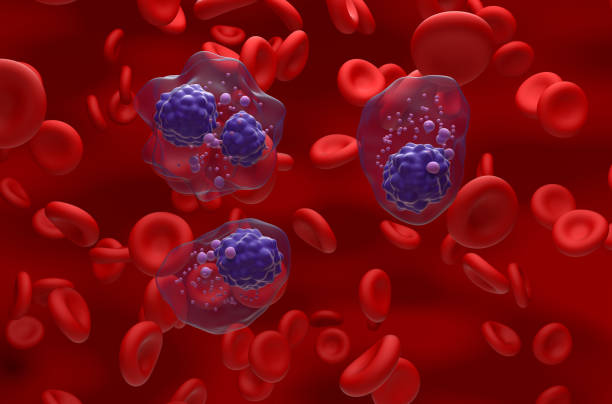Paroxysmal Nocturnal Hemoglobinuria Treatment: A Guide to Managing PNH
Paroxysmal Nocturnal Hemoglobinuria (PNH) is a rare, life-threatening disease characterized by the destruction of red blood cells, bone marrow failure, and impaired blood clotting. It requires a nuanced approach to treatment, focusing on managing symptoms and preventing complications. This guide offers an overview of the current strategies in PNH treatment, highlighting recent advancements and supportive care measures.

Understanding Paroxysmal Nocturnal Hemoglobinuria
PNH is a clonal hematopoietic stem cell disorder, leading to the production of blood cells that are deficient in certain proteins, making them susceptible to destruction by the immune system. This destruction leads to hemolysis, which can cause a range of symptoms including fatigue, shortness of breath, and dark urine, particularly noticeable in the morning.
Diagnosing PNH
Diagnosis of PNH typically involves:
- Blood Tests: Including flow cytometry to detect PNH cells.
- Bone Marrow Examination: To assess the overall health of bone marrow.
- Other Tests: Such as CT scans or ultrasounds, to check for blood clots or other complications.
Treatment Options for PNH
The treatment of PNH has evolved significantly over the years, and current options aim to reduce hemolysis, alleviate symptoms, and prevent complications:
- Eculizumab (Soliris): A monoclonal antibody that inhibits part of the immune system responsible for the destruction of red blood cells. It’s the first approved treatment for PNH and has dramatically improved outcomes.
- Ravulizumab (Ultomiris): Similar to eculizumab, but requires less frequent dosing.
- Blood Transfusions: Used to treat severe anemia, a common complication of PNH.
- Anticoagulants: To prevent blood clots, another significant risk in PNH patients.
- Bone Marrow Transplant: Considered in severe cases or when PNH is associated with bone marrow failure disorders.
Managing Symptoms and Complications
- Regular Monitoring: Including blood tests to monitor hemoglobin levels and kidney function.
- Vaccinations: To prevent infections due to immunosuppression from some PNH treatments.
- Lifestyle Adjustments: Including dietary changes and avoiding certain activities that might increase the risk of bleeding or bruising.
Research and Emerging Treatments
Ongoing research in PNH treatment includes:
- Novel Therapeutics: Exploring new drugs that target different aspects of the disease.
- Gene Therapy: Investigating potential curative approaches by correcting the genetic defect in stem cells.
Supportive Care
Living with PNH can be challenging, and supportive care is crucial:
- Patient Education: Understanding the disease and its management.
- Psychological Support: Coping with the stress and anxiety associated with chronic illness.
- Support Groups: Connecting with others who have PNH.
Conclusion
Paroxysmal Nocturnal Hemoglobinuria, while a rare and challenging disease, has seen significant advancements in treatment. Modern therapies like eculizumab and ravulizumab have revolutionized care, significantly improving the quality of life and survival rates for PNH patients. Ongoing research and emerging treatments continue to bring hope for even more effective management and potential cures in the future. Comprehensive care, involving both advanced therapies and supportive measures, is essential for the optimal management of PNH.






